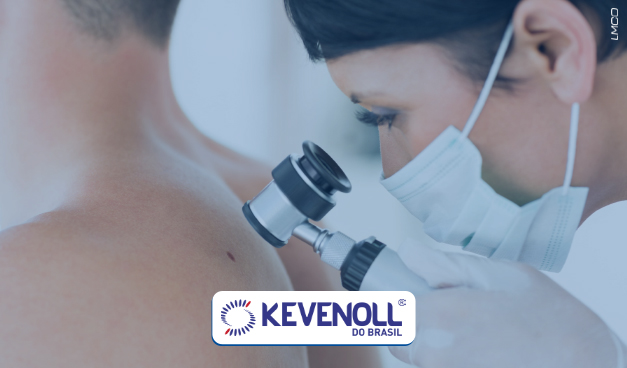Research indicates that skin diseases are one of the leading causes of disability on the planet. Dermatological problems cause several negative effects both physically and mentally on people, because they reach the largest and most exposed organ of the human body. The skin is always subject to the action of viruses, bacteria, fungi, sun rays, allergens and irritants, demanding attention and special care throughout life. And that’s where the figure of the Dermatologist, the medical professional responsible for skin care and treatment of diseases related to it, comes in. And there are countless diseases that this professional needs to be able to face every day, such as dermatitis, scabies, mycoses, eczema, boils, leprosy, among others.
And many of these diseases generate various types of secretions, becoming potential contaminants, and can infect other people by spreading microorganisms harmful to health, such as eczema and boils, which can present liquid and pus.
With this in mind, the procedure gloves play a fundamental role for the protection of dermatologists, and also of patients avoiding the spread of diseases or the worsening of the existing lesion. For this reason, they are PPE (Personal Protective Equipment) indispensable in dermatological clinics.
In addition to dealing with various types of skin diseases, the routine in a dermatological clinic also includes numerous aesthetic procedures, such as light and laser hair removal, microneedles, peelings, fillers, acne treatment and botox applications. And also chemical and surgical procedures, such as liposuction, biopsies and chemical and electrical cauterizations.
Even the simplest procedures on this list can cause small bleeding and other biological fluids, which can come into contact with the dermartologist and contaminate the professional. Hepatitis, HIV, or even mycoses and fungi can be acquired by physicians if the use of gloves is neglected or done incorrectly.
Therefore, always be aware of the tips:
- Watch out for the gloves. The correct way to put the gloves on your hands (especially surgical gloves) interferes with the effectiveness of the protection they offer.
- Remember that the use of gloves does not rule out hand hygiene. It is necessary to follow the step by step of washing (basic or surgical), always before and after performing any dermatological procedure.
- The size of the gloves is also an important factor. Worry about choosing gloves in the right size for your hands, as very loose gloves reduce the dexterity of the professional, and impair the manipulation of objects, while very tight gloves can cause discomfort, obstruction of blood circulation, impair movement, and even cause the puncture of gloves.
- The time to remove the gloves also requires care. If there is contact with the contaminated part of the gloves after use, the professional may also be at risk. Care and rigor with the glove removal technique is necessary to eliminate health risks to the dermatologist.
- Also worry about the validity of the gloves. It directly interferes with the protective capacity of the gloves for the professional and the patient, and takes into account the degradation time of the material under normal or special conditions.
- And never forget: procedure gloves should not be reused! Washing the gloves to reuse them does not guarantee total decontamination of them. In addition, the protective capacity of the material can be compromised, undergoing changes during the washing process, which make them ineffective and dangerous.
Choose the right glove for each activity and count on who offers quality products. Click to know Kevenoll products from Brazil.



